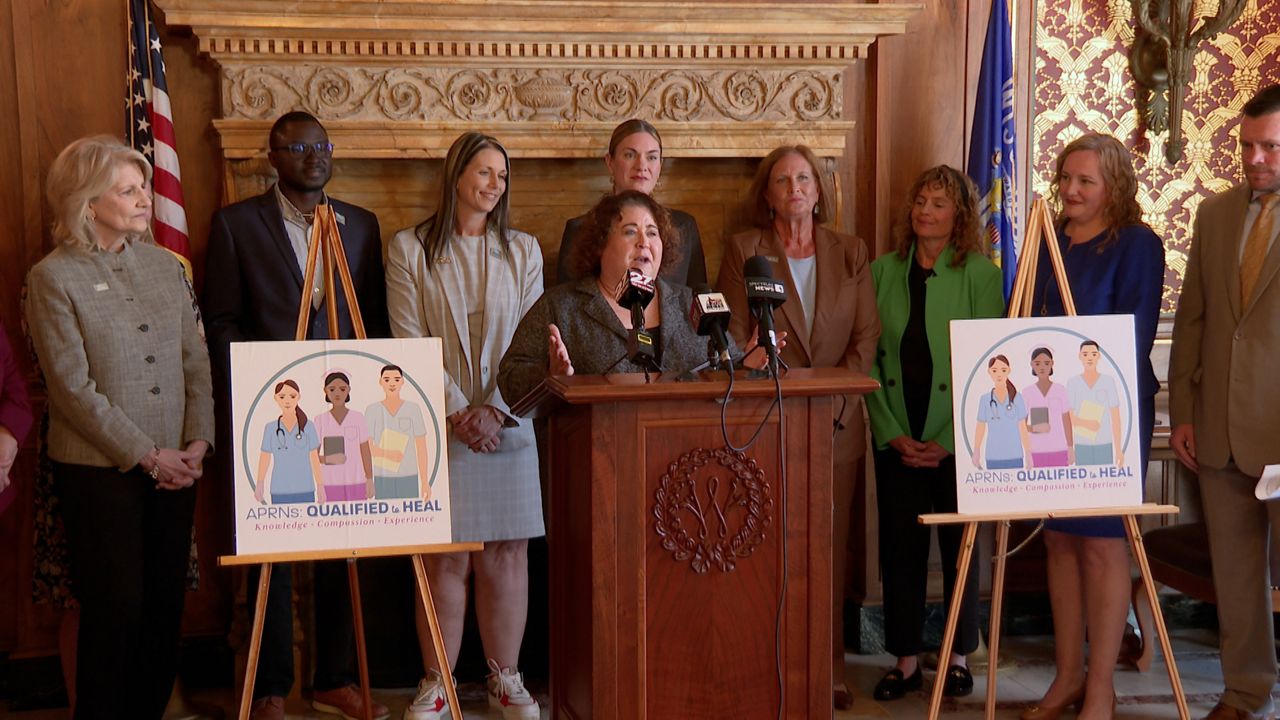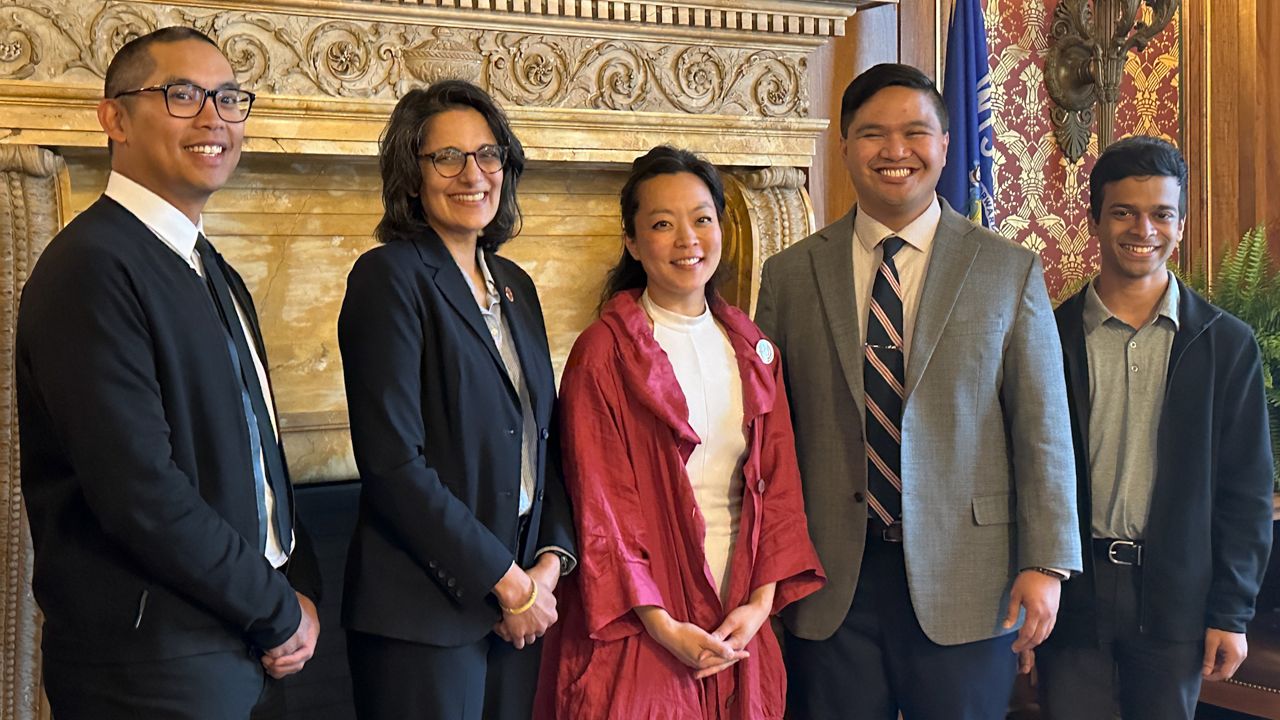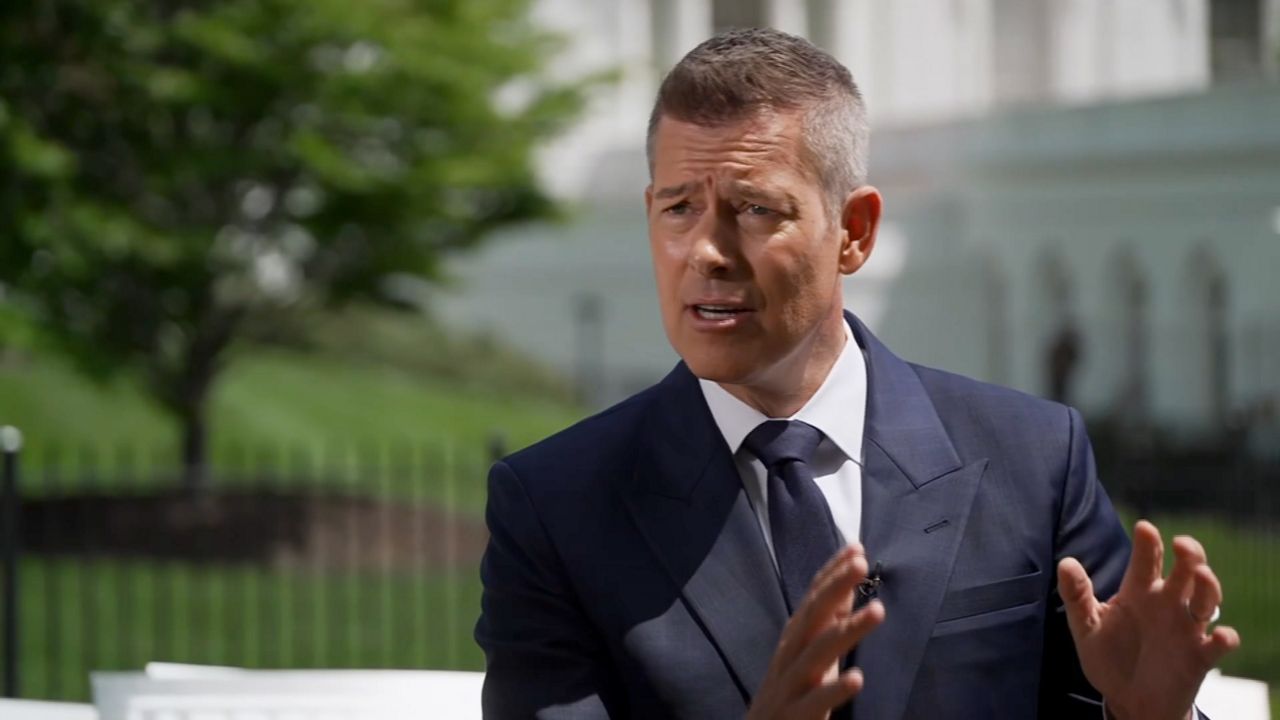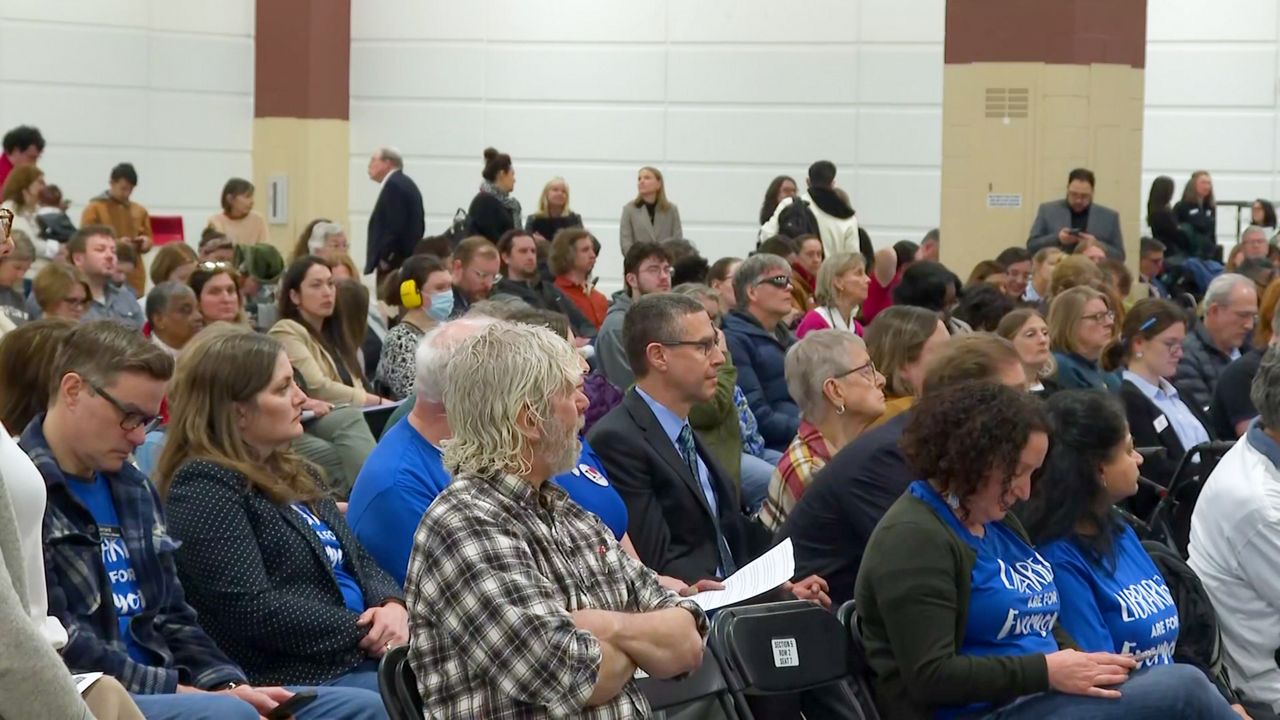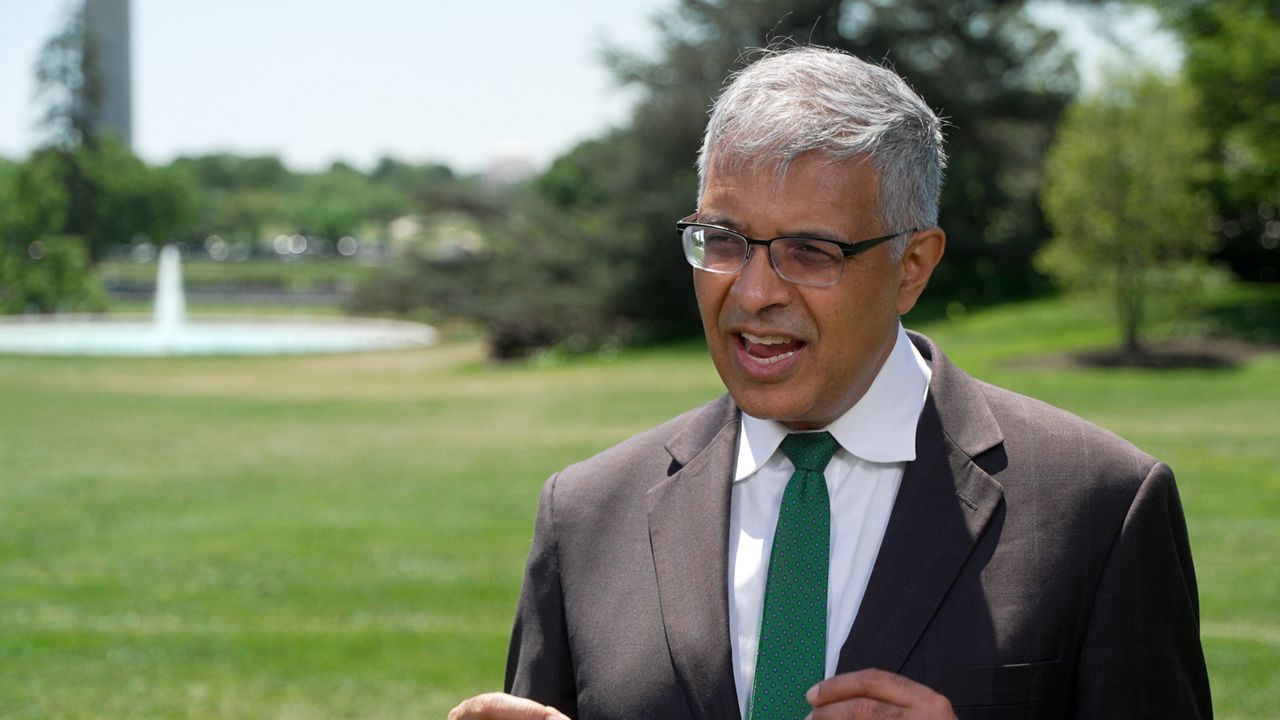WASHINGTON – John Rosenow has employed immigrants from Mexico on his dairy farm in Buffalo County, Wisconsin for 27 years.
“90% of the milk in Wisconsin is harvested by immigrants,” he said. “And so if you took the immigrants away, you basically would not have a dairy industry in Wisconsin.”
Rosenow is the owner of Rosenholm Dairy and Cowsmo Compost. His family has been farming in Cochrane for more than 150 years.
“We’ve milked cows every day, twice a day, and never missed a day,” he said. “In 1990, we expanded to a larger dairy because of a barn fire. And so, it got to a point where we couldn’t do all the work ourselves. We had to hire people to get it done.”
In the late 1990s, Rosenow said he was getting desperate and “reluctantly went to immigrants” because the local labor force “dried up.”
“I found a company in Texas that would send me an immigrant,” Rosenow said. “First one was Manuel Perez in 1998. He came, and he worked 54 days straight. He was just amazing, so I got to have a great feeling about immigrant employees, because the local people … the only ones that were left to hire were the ones that nobody else wanted to hire and had bad work habits and wouldn’t show up and had all kinds of problems. So, when I found Manuel, he was great. When he went home, I hired two more. And ever since then, when somebody quit, or something like that, I would hire an immigrant because I knew I would get a really, really good employee.”
Today, 13 of his 18 employees are immigrants.
Last week, President Trump said if a farmer strongly recommends certain undocumented workers, he’d work to allow them to stay, but only after they leave the country for 60 days.
“They'll go out,” the President said. “They're going to come back as legal workers.”
Though Rosenow employs workers with green cards, he said if he knew an undocumented immigrant, he’d suggest they not go back to their home country.
“Because they're going to change their mind and they're going to not allow you back, and you just can't trust that,” Rosenow said.
Denise Gilman, a visiting law professor at Georgetown University, said that’s the crux of the problem.
“So the details are very vague, and that's what would make anybody nervous about actually participating in the program, without much greater clarity and without some assurances that the promises would actually be upheld, given the track record of harshness towards migrants,” Gilman said.
The White House says it wants to improve H-2A visas, which allow foreign nationals to fill temporary agriculture jobs, but declined to provide more details. Dairy farms are not included in the H-2A visa program because labor is required year-round.
“If we really want to address irregular migration at the border, what we need to do is expand lawful migration categories well beyond the limits that they have in terms of numbers right now,” Gilman said. “And so I expect that that's what the administration means, is that they would expand the number of individuals who could come through existing farm worker programs, and that overall would be an important advance.”
Rosenow said of course he'd like the immigration system to be fixed, but he isn’t holding his breath. He said he’s traveled to Washington many times over the past 20 years and continually hears the same thing.
“Democrats say, ‘Well, we can’t do anything because we don’t have any power.’ And Republicans say, ‘Well, I’m not going to do it until the border is secure.’ Then I ask them, ‘Well, when will the border be secure? How do I know that the border is secure?’ And they say, ‘Well, just when it’s secure,’” Rosenow said.
“And so while they're all talking about it and all trying to get things figured out and try to get reelected and to avoid a difficult issue, we still have to milk cows every day. They have to be milked at least twice a day, and I can't wait for them to do things,” Rosenow continued. “It's not our fault that the immigration system isn't the way it should be; it's their fault.”
Some immigration experts are concerned that any mass deportation program without clear measures to bring workers back could devastate the economy.
“We rely on migrants working in a number of industries, and they contribute to the economy through their work, but also through their involvement in the economy, their consumer purchases, and also through their taxes that they're paying,” Gilman said.




